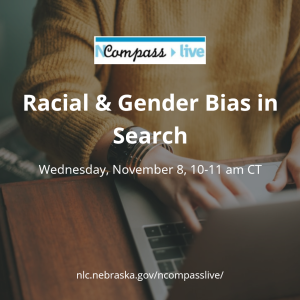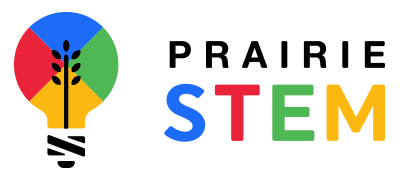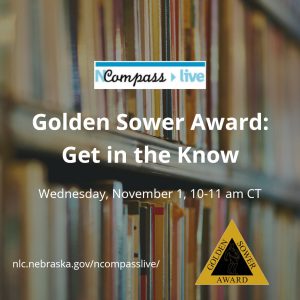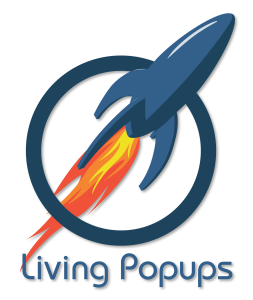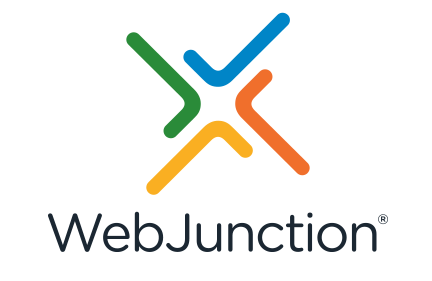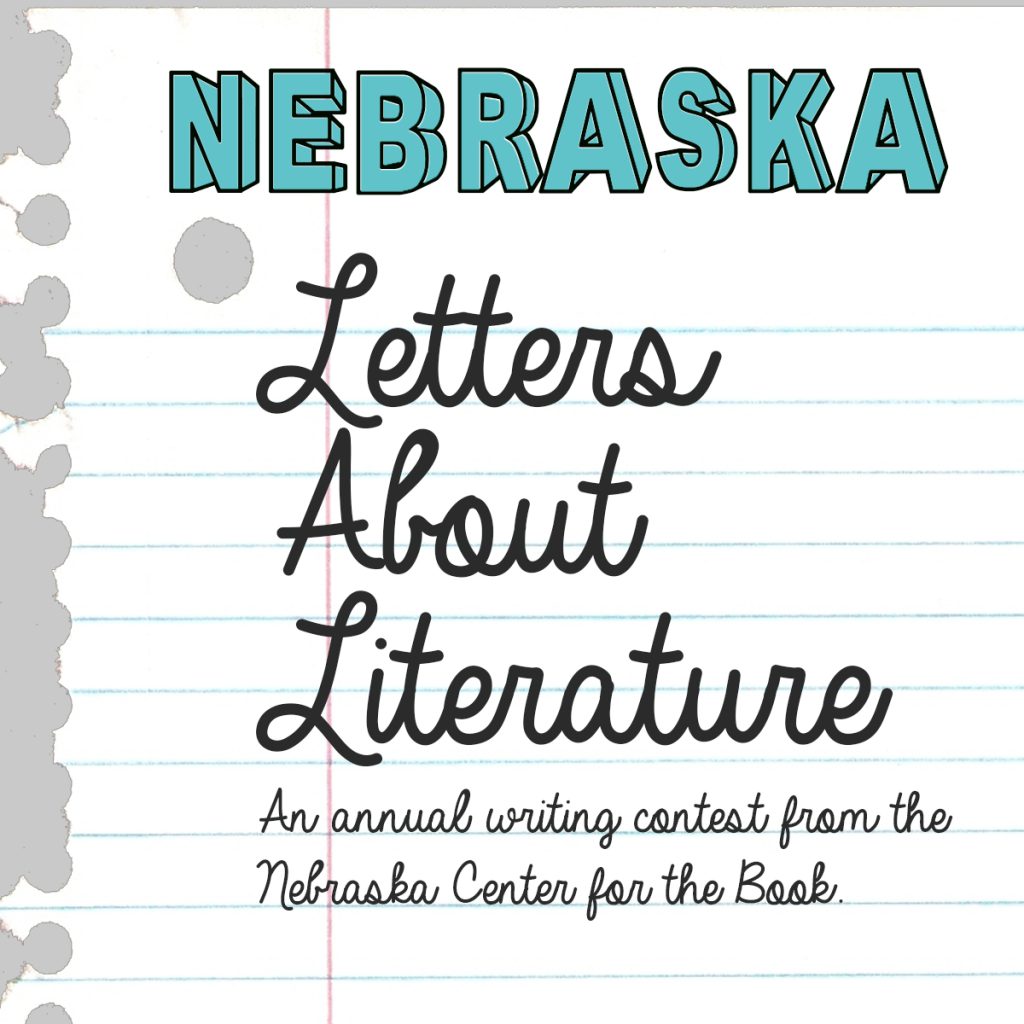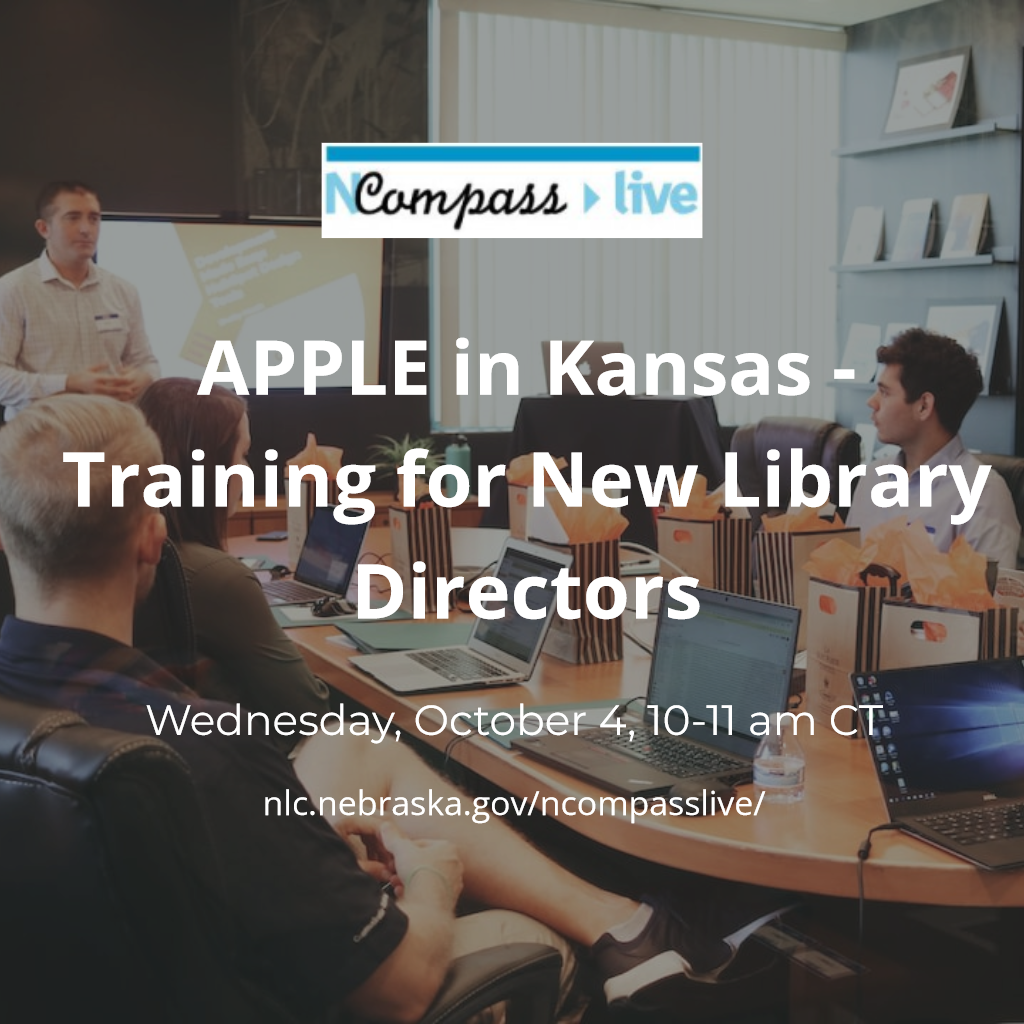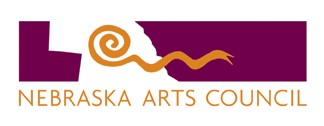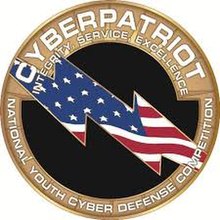Search the Blog
Categories
- Books & Reading
- Broadband Buzz
- Census
- Education & Training
- General
- Grants
- Information Resources
- Library Management
- Nebraska Center for the Book
- Nebraska Libraries on the Web
- Nebraska Memories
- Now hiring @ your library
- Preservation
- Pretty Sweet Tech
- Programming
- Public Library Boards of Trustees
- Public Relations
- Talking Book & Braille Service (TBBS)
- Technology
- Uncategorized
- What's Up Doc / Govdocs
- Youth Services
Archives
Subscribe
Category Archives: Education & Training
NCompass Live: Redesigning a Library Website
‘Redesigning a Library Website’ can be a tricky process. Learn how one library is doing it on next week’s NCompass Live webinar on Wednesday, November 15, at 10am CT.
Developing a website that meets branding guidelines, prioritizes student-focused user needs, and caters to library professional user quirks can be tricky and, at times, downright impossible. This session explores redesigning a library homepage, including planning, building, implementing, and assessing a new library website. A robust resource list is provided to help start the redesign process, along with guidance on developing a unique website schema and layout. Conflict between university branding guidelines and EDU platforms is discussed. Attendees with zero coding experience, those with little to low budget for web redesign, and those from small libraries are all encouraged to attend.
Presenter: Virginia Cononie, Associate Librarian, Coordinator of Research Services, University of South Carolina Upstate.
Upcoming NCompass Live shows:
- Nov. 22 – Best New Children’s Books of 2023
- Nov. 29 – Pretty Sweet Tech: Internet Librarian 2023 Highlights
- Dec. 6 – Using Creativity to Grow & Develop
- Dec. 13 – Canvaholic
- Dec. 20 – Summer Reading Program 2024: Adventure Begins at Your Library
- Jan. 17, 2024 – Auditing Library Websites
- Jan. 24, 2024 – Best New Teen Reads of 2023

To register for an NCompass Live show, or to listen to recordings of past shows, go to the NCompass Live webpage.
NCompass Live is broadcast live every Wednesday from 10am – 11am Central Time. Convert to your time zone on the Official U.S. Time website.
The show is presented online using the GoTo Webinar online meeting service. Before you attend a session, please see the NLC Online Sessions webpage for detailed information about GoTo Webinar, including system requirements, firewall permissions, and equipment requirements for computer speakers and microphones.
Computers in Libraries 2024 Conference (March 12-March 14) Discount

The Nebraska Library Commission is offering a group discount to all Nebraska librarians who attend the Computers in Libraries 2024 conference. This year it will be held at the Hyatt Regency Crystal City, Arlington, VA, from March 12th through March 14th, 2024. Detailed information about the conference can be found on the conference web site.
This year the Gold Pass will be available for the group rate of $679 (regular rate is $929). The Full 3-day Pass will be $399 (regular rate is $639). No discount rates are available for the preconference workshops, unless purchased as part of a Gold Pass.
In addition, a discounted price of $629 (regularly $779) on the Library Leaders Summit (includes all three days of CIL) is also available.
To receive the discount:
- Go to the Computers in Libraries 2024 Registration page: https://secure.infotoday.com/RegForms/ComputersinLibraries/
- Type priority code 24NLC in the Priority Code field at the top of the form, and click the “Activate Code” button. Discounted rates should appear on the registration form after you successfully activate the code.
- If you prefer, in lieu of the previous two steps use this embedded code link: https://secure.infotoday.com/RegForms/ComputersinLibraries/?Priority=24NLC
- Complete and submit the online form by the deadline.
Deadline: Online registrations can be made until February 9th to receive the discounted rates. Please note that if the deadline is extended for regular registration, your deadline will also be extended. After this time, rates will go up by $30 (Gold and 3-Day), and $50 (Library Leaders).
If you have questions, please contact Susan Knisely
Posted in Education & Training, Technology
Leave a comment
NCompass Live: Racial & Gender Bias in Search
Learn how to help your patrons improve their search and online information literacy on next week’s NCompass Live webinar on Wednesday, November 8, at 10am CT.
Many library users believe that when they use a search engine, they are always getting factual, unbiased, and objective results. But search engines and the algorithms that power them are not neutral. This session explores some of the racial and gender biases found in search and looks at how these biases impact search results. By examining the idea of search neutrality, we can gain a better understanding of how human beings influence, for better or worse, the creation and ongoing maintenance of search algorithms. Through examining bias in search, we can help our patrons improve their search and online information literacy.
Presenter: Marcella Fredriksson, Web & Discovery Services Librarian, University of North Carolina Wilmington (UNCW). She received her BA from Boston University in 2002 and her MSLS from Catholic University in 2006. She has been at UNCW since 2016. Her research interests include improving the usability of library websites and the library search experience.
Upcoming NCompass Live shows:
- Nov. 15 – Redesigning a Library Website
- Nov. 22 – Best New Children’s Books of 2023
- Nov. 29 – Pretty Sweet Tech: Internet Librarian 2023 Highlights
- Dec. 6 – Using Creativity to Grow & Develop
- Dec. 13 – Canvaholic
- Dec. 20 – Summer Reading Program 2024: Adventure Begins at Your Library
- Jan. 17, 2024 – Auditing Library Websites
- Jan. 24, 2024 – Best New Teen Reads of 2023

To register for an NCompass Live show, or to listen to recordings of past shows, go to the NCompass Live webpage.
NCompass Live is broadcast live every Wednesday from 10am – 11am Central Time. Convert to your time zone on the Official U.S. Time website.
The show is presented online using the GoTo Webinar online meeting service. Before you attend a session, please see the NLC Online Sessions webpage for detailed information about GoTo Webinar, including system requirements, firewall permissions, and equipment requirements for computer speakers and microphones.
Book Briefs: New University of Nebraska Press Books at the Nebraska Publications Clearinghouse
The Nebraska Publications Clearinghouse receives documents every month from all Nebraska state agencies, including the University of Nebraska Press (UNP). Each month we will be showcasing the UNP books that the Clearinghouse has received.
UNP books, as well as all Nebraska state documents, are available for checkout by libraries and librarians for their patrons.
Here are the UNP books the Clearinghouse received in September and October, 2023:
Almost Somewhere : Twenty-Eight Days on the John Muir Trail, by Suzanne Roberts. Series: Outdoor Lives.
Winner of the National Outdoor Book Award in Outdoor Literature
It was 1993, Suzanne Roberts had just finished college, and when her friend suggested they hike California’s John Muir Trail, the adventure sounded like the perfect distraction from a difficult home life and thoughts about the future. But she never imagined that the twenty-eight-day hike would change her life. Part memoir, part nature writing, part travelogue, Almost Somewhere is Roberts’s account of that hike.
John Muir wrote of the Sierra Nevada as a “vast range of light,” and that was exactly what Roberts was looking for. But traveling with two girlfriends, one experienced and unflappable and the other inexperienced and bulimic, she quickly discovered that she needed a new frame of reference. Her story of a month in the backcountry—confronting bears, snowy passes, broken equipment, injuries, and strange men—is as much about finding a woman’s way into outdoor experience as it is about the natural world Roberts so eloquently describes. Candid and funny, and finally, wise, Almost Somewhere not only tells the whimsical coming-of-age story of a young woman ill-prepared for a month in the mountains but also reflects a distinctly feminine view of nature.
This new edition includes an afterword by the author looking back on the ways both she and the John Muir Trail have changed over the past thirty years, as well as book club and classroom discussion questions and photographs from the trip.
The Complete Letters of Henry James, 1887-1888, Volume 2, Edited by Michael Anesko and Greg W. Zacharias, and Katie Sommer. Series: The Complete Letters of Henry James
This second volume of The Complete Letters of Henry James, 1887–1888 contains 182 letters, of which 120 are published for the first time, written from late December 1887 to November 19, 1888. These letters continue to mark Henry James’s ongoing efforts to care for his sister, develop his work, strengthen his professional status, build friendships, engage timely political and economic issues, and maximize his income. James details work on The Aspern Papers, The Reverberator, Partial Portraits, and The Tragic Muse. This volume opens with some of James’s social visits, includes the death of longtime friend Lizzie Boott, and concludes with James on the Continent.
Ecologies of Imperialism in Algeria, by Brock Cutler. Series: France Overseas: Studies in Empire and Decolonization.
Between 1865 and 1872 widespread death and disease unfolded amid the most severe ecological disaster in modern North African history: a plague of locusts destroyed crops during a disastrous drought that left many Algerians landless and starving. The famine induced migration that concentrated vulnerable people in unsanitary camps where typhus and cholera ran rampant. Before the rains returned and harvests normalized, some eight hundred thousand Algerians had died.
In Ecologies of Imperialism in Algeria Brock Cutler explores how repeated ecosocial divisions across an expansive ecosystem produced modern imperialism in nineteenth-century Algeria. Massive ecological crises—cultural as well as natural—cleaved communities from their homes, individuals from those communities, and society from its typical ecological relations. At the same time, the relentless, albeit slow-moving crises of ongoing settler colonialism and extractive imperial capitalism cleaved Algeria to France in a new way. Ecosocial divisions became apparent in performances of imperial power: officials along the Algerian-Tunisian border compulsively repeated narratives of “transgression” that over decades made the division real; a case of poisoned bread tied settlers in Algiers to Paris; Morocco-Algeria border violence exposed the exceptional nature of imperial sovereignty; a case of vagabondage in Oran evoked colonial gender binaries. In each case, factors in the broader ecosystem were implicated in performances of social division, separating political entities from each other, human from nature, rational from irrational, and women from men. Although these performances take place in the nineteenth-century Maghrib, the process they describe goes beyond those spatial and temporal limits—across the field of modern imperialism to the present day.
Encountering Palestine : Un/Making Spaces of Colonial Violence, Edited by Mark Griffiths and Mikko Joronen. Series: Cultural Geographies + Rewriting the Earth.
Encountering Palestine: Un/making Spaces of Colonial Violence, edited by Mark Griffiths and Mikko Joronen, sits at the intersection of cultural and political geographies and offers innovative reflections on power, colonialism, and anti-colonialism in contemporary Palestine and Israel. Organized around the theme of encountering and focusing on the ways violence and struggle are un/made in the encounter between the colonizer and colonized, the essays focus on power relations as they manifest in cultural practices and everyday lives in anti/colonial Palestine.
Covering numerous sites in Gaza, the West Bank, East Jerusalem, and Israel, Encountering Palestine addresses a range of empirical topics—from marriage and queer aesthetics to policing, demolition, armament failure, and violence. The contributors utilize diverse theoretical frameworks, such as hyperreality, settler capitalism, intimate biopolitics, and politics of vulnerability, to help us better understand the cultural making and unmaking of colonial and anti-colonial space in Palestine. Encountering Palestine asks us to rethink how colonialism and power operate in Palestine, the ways Palestinians struggle, and the lifeways that constantly encounter, un/make, and counter the spaces of colonial violence.
Galloping Gourmet : Eating and Drinking With Buffalo Bill, by Steve Friesen.
Galloping Gourmet explores an unfamiliar side of a familiar character in American history, William F. “Buffalo Bill” Cody. In this entertaining narrative Steve Friesen explores the evolving role of eating and drinking in Buffalo Bill’s life (1846–1917). Friesen starts with Buffalo Bill’s culinary roots on the American Plains, eating simple foods such as cornbread, fried “yellow-legged” chicken, and hardtack. Buffalo Bill discovered gourmet dining while leading buffalo-hunting expeditions and scouting. As his fame increased, so did his desire and opportunities for fine dining: his early show business career allowed him to dine at some of the best restaurants in the country.
Friesen examines the creation of Buffalo Bill’s Wild West Show in 1883, in which Cody introduced his diverse cast of employees to dining that equaled America’s best restaurants. One newspaper reporter observed that “Colonel Cody displays no more care about anything than the proper feeding of horse and man.” Cody opened the first Mexican restaurant east of the Mississippi and introduced American foodways to Europe. Equally comfortable eating around a campfire on the plains or at Delmonico’s in New York City, he also dined with leading celebrities of his day. In the final section Friesen addresses the controversies surrounding Cody’s drinking, his death, and his ongoing culinary legacy. Galloping Gourmet includes an appendix of more than thirty annotated period recipes.
Godfall : a Novel, by Van Jensen. Series: Flyover Fiction.
When a massive asteroid hurtles toward Earth, humanity braces for annihilation—but the end doesn’t come. In fact, it isn’t an asteroid but a three-mile-tall alien that drops down, seemingly dead, outside Little Springs, Nebraska. Dubbed “the giant,” its arrival transforms the red-state farm town into a top-secret government research site and major metropolitan area, flooded with soldiers, scientists, bureaucrats, spies, criminals, conspiracy theorists—and a murderer.
As the sheriff of Little Springs, David Blunt thought he’d be keeping the peace among the same people he’d known all his life, not breaking up chanting crowds of conspiracy theorists in tiger masks or struggling to control a town hall meeting about the construction of a mosque. As a series of brutal, bizarre murders strikes close to home, Blunt throws himself into the hunt for a killer who seems connected to the Giant. With bodies piling up and tensions in Little Springs mounting, he realizes that in order to find the answers he needs, he must first reconcile his old worldview with the town he now lives in—before it’s too late.
The Grapes of Conquest : Race, Labor, and the Industrialization of California Wine, 1769-1920, by Julia Ornelas-Higdon. Series: At Table.
California’s wine country conjures images of pastoral vineyards and cellars lined with oak barrels. As a mainstay of the state’s economy, California wines occupy the popular imagination like never before and drive tourism in famous viticultural regions across the state. Scholars know remarkably little, however, about the history of the wine industry and the diverse groups who built it. In fact, contemporary stereotypes belie how the state’s commercial wine industry was born amid social turmoil and racialized violence in eighteenth- and nineteenth-century California.
In The Grapes of Conquest Julia Ornelas-Higdon addresses these gaps in the historical narrative and popular imagination. Beginning with the industry’s inception at the California missions, Ornelas-Higdon examines the evolution of wine growing across three distinct political regimes—Spanish, Mexican, and American—through the industry’s demise after Prohibition. This interethnic study of race and labor in California examines how California Natives, Mexican Californios, Chinese immigrants, and Euro-Americans came together to build the industry. Ornelas-Higdon identifies the birth of the wine industry as a significant missing piece of California history—one that reshapes scholars’ understandings of how conquest played out, how race and citizenship were constructed, and how agribusiness emerged across the region. The Grapes of Conquest unearths the working-class, multiracial roots of the California wine industry, challenging its contemporary identity as the purview of elite populations.
The Incarceration of Native American Women : Creating Pathways to Wellness and Recovery Through Gentle Action Theory, by Carma Corcoran. Series: New Visions in Native American and Indigenous Studies.
In The Incarceration of Native American Women, Carma Corcoran examines the rising number of Native American women being incarcerated in Indian Country. With years of experience as a case management officer, law professor, consultant to tribal defenders’ offices, and workshop leader in prisons, she believes this upward trajectory of incarceration continues largely unacknowledged and untended. She explores how a combination of F. David Peat’s gentle action theory and the Native traditional ways of knowing and being could heal Native American women who are or have been incarcerated.
Colonization and the historical trauma of Native American incarceration runs through history, spanning multiple generations and including colonial wartime imprisonment, captivity, Indian removal, and boarding schools. The ongoing ills of childhood abuse, domestic violence, sexual assault, and drug and alcohol addiction and the rising number of suicides are indicators that Native people need healing. Based on her research and work with Native women in prisons, Corcoran provides a theory of wellness and recovery that creates a pathway for meaningful change. The Incarceration of Native American Women offers students, academics, social workers, counselors, and those in the criminal justice system a new method of approach and application while providing a deeper understanding of the cultural and historical experiences of Native Americans in relation to criminology.
Nebraska Volleyball : the Origin Story, by John Mabry.
When Title IX was enacted in 1972, the University of Nebraska volleyball program, like many across the country, received a fraction of the funding and attention given to the school’s mighty football program. The players had to organize a run from Lincoln to Omaha to raise money for uniforms. The women were asked to wait their turn to use the weight room. Today the Nebraska women’s volleyball team is one of the sport’s most decorated programs—with more career wins than any other program and five NCAA National Championships—and draws standing-room-only crowds at home games in the 8,000-seat Devaney Center.
Nebraska Volleyball is the first book to recount how volleyball took hold at Nebraska, through Pat Sullivan, the team’s first coach; through such early figures as Cathy Noth, a decorated player and later an assistant coach into the 1990s; through Terry Pettit, who coached the team for twenty-three seasons and led it to its first National Championship in 1995; and through John Cook, who took over as head coach in 2000. John Mabry highlights the small Nebraska towns that have sent some of the best players to the program and helped build statewide support for the team. Public television helped too, with its power to broadcast games early on and thus build a following across the state.
The success of Nebraska’s volleyball program is one of the greatest stories in sports. As Karch Kiraly, head coach for the U.S. National Women’s Volleyball Team, said: “If you want to learn about women’s college volleyball, your first stop has to be Lincoln, Nebraska.”
Of Love and War : Pacific Brides of World War II, by Angela Wanhalla. Series: Studies in Pacific Worlds.
Between 1942 and 1945 more than two million servicemen occupied the southern Pacific theater, the majority of whom were Americans in service with the U.S. Army, Navy, Air Force, and Marines. During the occupation, American servicemen married approximately 1,800 women from New Zealand and the island Pacific, creating legal bonds through marriage and through children. Additionally, American servicemen fathered an estimated four thousand nonmarital children with Indigenous women in the South Pacific Command Area.
In Of Love and War Angela Wanhalla details the intimate relationships forged during wartime between women and U.S. servicemen stationed in the South Pacific, traces the fate of wartime marriages, and addresses consequences for the women and children left behind. Paying particular attention to the experiences of women in New Zealand and in the island Pacific—including Tonga, Fiji, Samoa, and the Cook Islands—Of Love and War aims to illuminate the impact of global war on these women, their families, and Pacific societies. Wanhalla argues that Pacific war brides are an important though largely neglected cohort whose experiences of U.S. military occupation expand our understanding of global war. By examining the effects of American law on the marital opportunities of couples, their ability to reunite in the immediate postwar years, and the citizenship status of any children born of wartime relationships, Wanhalla makes a significant contribution to a flourishing scholarship concerned with the intersections between race, gender, sexuality, and militarization in the World War II era.
Rise Up! : Indigenous Music in North America, by Craig Harris.
Music historian Craig Harris explores more than five hundred years of Indigenous history, religion, and cultural evolution in Rise Up! Indigenous Music in North America. More than powwow drums and wooden flutes, Indigenous music intersects with rock, blues, jazz, folk music, reggae, hip-hop, classical music, and more. Combining deep research with personal stories by nearly four dozen award-winning Indigenous musicians, Harris offers an eye-opening look at the growth of Indigenous music.
Among a host of North America’s most vital Indigenous musicians, the biographical narratives include new and well-established figures such as Mildred Bailey, Louis W. Ballard, Cody Blackbird, Donna Coane (Spirit of Thunderheart), Theresa “Bear” Fox, Robbie Robertson, Buffy Sainte-Marie, Joanne Shenandoah, DJ Shub (Dan General), Maria Tallchief, John Trudell, and Fawn Wood.
Settler Aesthetics : Visualizing the Spectacle of Originary Moments in The New World, by Mishuana Goeman. Series: Indigenous Films.
In Settler Aesthetics, an analysis of renowned director Terrence Malick’s 2005 film, The New World, Mishuana Goeman examines the continuity of imperialist exceptionalism and settler-colonial aesthetics. The story of Pocahontas has thrived for centuries as a cover for settler-colonial erasure, destruction, and violence against Native peoples, and Native women in particular. Since the romanticized story of the encounter and relationship between Pocahontas and Captain John Smith was first published, it has imprinted a whitewashed historical memory into the minds of Americans.
As one of the most enduring tropes of imperialist nostalgia in world history, Renaissance European invasions of Indigenous lands by settlers trades in a falsified “civilizational discourse” that has been a focus in literature for centuries and in films since their inception. Ironically, Malick himself was a symbol of the New Hollywood in his early career, but with The New World he created a film that serves as a buttress for racial capitalism in the Americas. Focusing on settler structures, the setup of regimes of power, sexual violence and the gendering of colonialism, and the sustainability of colonialism and empires, Goeman masterfully peels away the visual layers of settler logics in The New World, creating a language in Native American and Indigenous studies for interpreting visual media.
The Sonoran Dynasty in Mexico : Revolution, Reform, and Repression, by Jürgen Buchenau. Series: Confluencias.
Two generals from the northwestern state of Sonora, Álvaro Obregón and Plutarco Elías Calles, dominated Mexico between 1920 and 1934, having risen to prominence in the course of the Mexican Revolution. Torn between popular demands for ending the privileges of wealthy foreign investors and opposition by a hawkish U.S. administration and enemies at home, the two generals and their allies from their home state mixed radical rhetoric with the accommodation of entrenched interests.
In The Sonoran Dynasty in Mexico Jürgen Buchenau tells the story of this ruling group, which rejected the Indigenous and Catholic past during the decades of the revolution and aimed to reinvent Mexico along the lines of the modern and secular societies in western Europe and the United States. In addition to Obregón and Calles, the Sonoran Dynasty included Adolfo de la Huerta and Abelardo L. Rodríguez, four Sonorans among six presidents in less than two decades. Although the group began with the common aims of nationalism, modernization, central political control, and enrichment, Buchenau argues that this group progressively fell apart in a series of bloody conflicts that reflected broader economic, political, and social disagreements. By analyzing the dynasty from its origins through its eventual downfall, Buchenau presents an innovative look at the negotiation of power and state formation in revolutionary Mexico.
Ted Kooser : More Than a Local Wonder, by Carla Ketner, illustrated by Paula Wallace.
Long before Ted Kooser won a Pulitzer Prize for Poetry, served as the U.S. Poet Laureate, and wrote award-winning books for children, he was an unathletic child growing up in Iowa, yearning to fit in. Young Teddy found solace in stories, and one specific book, Robert McCloskey’s Lentil, inspired him to become a writer. As a child and later, while working in the insurance industry, Ted honed his craft and unique style as he wrote about the people and places of the rural Midwest. Ted Kooser: More Than a Local Wonder celebrates the power of stories and of finding oneself through words.
Washington State Politics and Government, by T.M. Sell. Series: Politics and Governments of the American States.
In the twenty-first century, as many candidates actively campaign against the very government they seek to serve in, and as many people appear to believe their government irreparably broken, T. M. Sell argues that in Washington State, the system works better than most realize. In Washington State Politics and Government Sell explains how the many parts of government function and introduces readers to a diverse array of individuals who work in government, including how they got there and what it is they’re trying to do. Sell covers the three branches of state government, plus county, city, special purpose district, and tribal governments. He explains the state budgets and taxes; the functions of major and better-known state agencies; how policy is made; the political landscape of Washington; and parties, voting, and elections.
Sell discusses economic development, including the importance of high-tech industry, aviation, Amazon.com, and more traditional parts of the state economy, such as timber and agriculture. He also provides a contemporary look at Washington’s elected officials, constitution, judiciary, media, demographics, and political culture and landscape. With this volume, any Washington citizen, student of politics, or specialist in government can gain insight into the state’s current political system.
**Pictures and Synopses courtesy of University of Nebraska Press.
Pretty Sweet Tech: Prairie STEM Library Pack Raffle!
The Nebraska Library Commission partnered with Prairie STEM to raffle off 42 STEM Library Packs! Each Library Pack comes with 12 individual kits that have instructions, career exploration information, and all the materials you need for assembly. Some of the design-related activities can be enhanced by items you have laying around the library.
About Prairie STEM
Prairie STEM is an Omaha-based nonprofit that offers STEM kits, educator training, and outreach programs in the Omaha area and beyond. They’ve partnered with various schools, libraries and educational institutions across the state, including virtual reality, drone, and smart garden programs.
Need Kits Right Away?
Through this partnership, you also have the option to purchase kits directly from Prairie STEM. You can get Classroom Packs of 12 or 24 of any or all of these types of kits:
- Cell Building Innovation
- Environmental Challenge
- Pendulum Painting
- Toothpaste Challenge
- Blood Model Innovation
- Design a Glider Innovation
- Quick Escape Challenge
Purchase kits directly at this link: https://stem-kits-nebraska-library-commission.cheddarup.com
Feel free to contact Prairie STEM to ask about partnering on any programming, custom kits, or educator/ facilitator training in your community.
Enter the Raffle!
Fill out this quick form to enter the raffle and be 1 of 42 libraries to win a STEM Pack! All the details are in the flyer below:
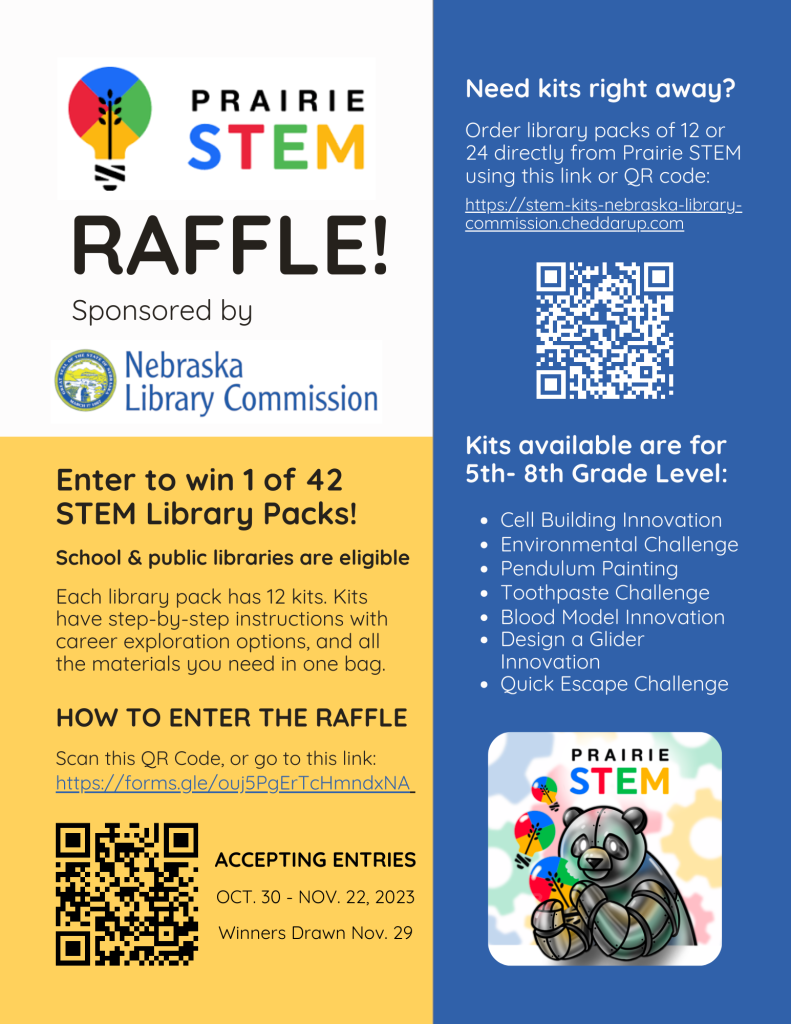
Happy Birthday Nebraska Publications Clearinghouse!
July 2023 marked the 51st anniversary of Nebraska Publications Clearinghouse operations!
Prior to 1972 there was no comprehensive program in the state for collecting and preserving Nebraska government publications. In 1971 the Nebraska Library Commission began surveying other states and Nebraska libraries to find out how such a program should work and drafting proposed legislation to give the program legal authority. In January 1972 LB 1284 was introduced in the Nebraska Legislature, passed and signed by the Governor in March establishing the Nebraska Publications Clearinghouse. The program was launched in July of that year.
State Depository Program
“There is hereby created, as a division of the Nebraska Library Commission, a Nebraska Publications Clearinghouse. The clearinghouse shall establish and operate a publications collection and depository system for the use of Nebraska citizens” The original legislation has been amended several times to exclude Junior Colleges and reduce the number of mandatory copies that agencies must send, but the basic operation of the program remains the same.
Federal Depository Program
The legislation also directed the Library Commission to provide access to federal publications. “The Nebraska Publications Clearinghouse shall provide access to local, state, federal and other governmental publications to state agencies and legislators and through interlibrary loan service to citizens of the state.” The Commission began participating in the Federal Depository Library Program (FDLP) in 1972. It served as Nebraska’s Regional Federal Depository until 1984, when Love Library at the University of Nebraska-Lincoln became the Regional. The Commission is now a selective depository and has reduced its selections to about 2% of the publications offered through the program.
How Publications are Collected
Agencies are currently defined as “every state office, officer, department, division, bureau, board, commission, and agency of the state and, when applicable, all subdivisions of each, including state institutions of higher education defined as all state-supported colleges and universities”
The first challenge facing the new Clearinghouse service was creating a comprehensive list of these agencies. The next challenge was getting them to send their publications. Unlike some other states, Nebraska does not use a central printing agency that could make extra copies for the documents program. A network of contact persons is used instead.
“Every state agency head or his or her appointed records officer shall notify the Nebraska Publications Clearinghouse of his or her identity.” Every few years the Library Commission sends agency directors letters with a form for designating an agency contact person. The contacts are sent a packet of information about the Clearinghouse service.
In the early years of the program agencies supplied more copies to the Clearinghouse than they do now and both the statutorily designated recipients and the contract depositories received paper publications. Space restrictions at the depositories, cost limitations for the agencies, and a desire to preserve publications in a long-lasting format resulted in a reduction in the number of paper copies normally required from each agency.
The current statute reads “The records officer shall upon release of a state publication deposit four copies and a short summary, including author, title, and subject, of each of its state publications with the Nebraska Publications Clearinghouse for record purposes…. Additional copies, including sale items, shall also be deposited in the Nebraska Publications Clearinghouse in quantities certified to the agencies by the clearinghouse as required to meet the needs of the Nebraska publications depository system, with the exception that the University of Nebraska Press shall only be required to deposit four copies of its publications.”
One copy is kept at the Library Commission and copies are forwarded to the Historical Society and Library of Congress. Until the spring of 2005 microfiche copies were produced from the fourth copy and distributed to Nebraska depositories.
Processing and Cataloging
Once the list of agencies was compiled in 1972 a classification system based on agency names (NEDOCS) was created and the first Guide to State Agencies was published. The Guide lists agencies with their five digit alpha-numeric code and traces agency creation, mergers, discontinuance, and classification number changes. Originally a print publication reissued every few years, the Guide is now continuously updated online.
The Statute states that “The Nebraska Publications Clearinghouse shall publish and distribute regularly to contracting depository libraries, other libraries, state agencies and legislators, an official list of state publications with an annual cumulation. The official list shall provide a record of each agency’s publishing and show author, agency, title and subject approaches.”From 1972 until 1991 The Nebraska State Publications Checklist was produced. The Checklist included abstracts with a title, subject and agency index. It was issued on microfiche several times a year with an annual cumulation. In 1992 the Checklist was discontinued and publications began receiving full OCLC cataloging. Nebraska publications now are listed in the WorldCat, the OCLC database of catalog records contributed by its member libraries worldwide. The WorldCat can be searched without cost by any Nebraska citizen from NebraskAccess with a driver’s license number or password obtained from their local library. Older records from the Checklist can also be searched using the Library Commission catalog. Publications received are listed in What’s Up Doc and compiled into an annual publication.
The Depository Program
Contrary to what the word “clearinghouse” might make one think, the Library Commission is not a warehouse distributing giveaway or sale copies of Nebraska publications. The Commission is in fact prohibited by law from doing that. At first copies were forwarded to the Nebraska State Historical Society, Library of Congress, and Center for Research Libraries. This was amended later to exclude the Center for Research Libraries.
The legislation also authorized the Library Commission to “enter into depository contracts with any municipal or county public library, state college or state university library, and out-of-state research libraries. The requirements for eligibility to contract as a depository library shall be established by the Nebraska Publications Clearinghouse. The standards shall include and take into consideration the type of library, ability to preserve such publications and to make them available for public use, and also such geographical locations as will make the publications conveniently accessible to residents in all areas of the state.”
By 1975 contracts had been signed with six institutions willing to serve as depositories. More depositories were added over the years, bringing the total since 1990 to 13 plus the Nebraska State Historical Society.
Depository Library Responsibilities
Making Government Information Accessible
Internet technology has created an opportunity to greatly improve public access to government information. Most state agencies now post key publications to their web sites, and much legislative information is available online. The Library Commission was already making extensive use of the Internet to direct users to Nebraska government information, and had created special web sites such as Nebraska State Government Publications Online and Nebraska Legislators, Past and Present.
In 2005 breakdown of the microfiche camera at the state Records Management Division led to a decision to discontinue fiche production and redirect the program toward providing online access to the same high-priority documents that were formerly sent to depositories on microfiche. They are downloaded or scanned, archived on a Library Commission server, and searchable via Nebraska State Government Publications Online and the NLC catalog. Instead of microfiche, depositories receive regular alerts via What’s Up Doc blog postings which include stable urls that can be used in library catalog records.
The Library Commission partners with the Official State of Nebraska Web Site to offer an “Ask a Librarian” link citizens can use to email, or telephone our reference desk. Many government information links are provided from our NebraskAccess site.
Resources for Government Information
Formats and distribution methods may change, but the Publications Clearinghouse will continue to use new technology and strategies for making government information accessible to Nebraskans.
NCompass Live: Golden Sower Award: Get in the Know
Learn all about Nebraska’s Children’s Choice Award, the Golden Sower, on next week’s NCompass Live webinar on Wednesday, November 1, at 10am CT.
The Nebraska Golden Sower Award is Nebraska’s Children’s Choice Literary Award, sponsored by the Nebraska Library Association. Since 1982, the Golden Sower Award has sought to sow seeds which stimulate children’s thinking, introduce different types of literature, encourage independent reading, increase library skills, and foster an appreciation for excellence in writing and illustrating. This presentation will address the nature of the award, describe the award process, provide updates on changes to the award and committee structure, and share how to get involved.
Presenter: Anne Price, Nebraska Golden Sower Award Committee Member; Children’s Librarian, North Platte Public Library.
Upcoming NCompass Live shows:
- Nov. 8 – Racial & Gender Bias in Search
- Nov. 15 – Redesigning a Library Website
- Nov. 22 – Best New Children’s Books of 2023
- Nov. 29 – Pretty Sweet Tech: Internet Librarian 2023 Highlights
- Dec. 6 – Using Creativity to Grow & Develop
- Dec. 13 – Canvaholic
- Dec. 20 – Summer Reading Program 2024: Adventure Begins at Your Library
- Jan. 17, 2024 – Auditing Library Websites
- Jan. 24, 2024 – Best New Teen Reads of 2023

To register for an NCompass Live show, or to listen to recordings of past shows, go to the NCompass Live webpage.
NCompass Live is broadcast live every Wednesday from 10am – 11am Central Time. Convert to your time zone on the Official U.S. Time website.
The show is presented online using the GoTo Webinar online meeting service. Before you attend a session, please see the NLC Online Sessions webpage for detailed information about GoTo Webinar, including system requirements, firewall permissions, and equipment requirements for computer speakers and microphones.
‘E-rate: What’s New for 2024?’ Online Workshops Scheduled
‘E-rate: What’s New for 2024?’ workshops are now open for registration! All workshops will be held online only, via GoTo Webinar.
NOTE: This online workshop is being offered on multiple days and at varied times. The same information will be provided at each workshop, so you only need to attend one session. A recorded version will also be made available after all of the live sessions have been held.
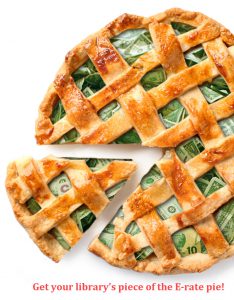
What is E-rate? How can my library benefit from E-rate? How do I apply for E-rate?
E-rate is a federal program that provides discounts to schools and public libraries on the cost of their Internet Access and Connections to make these services more affordable. This includes Broadband, Fiber, and Wi-Fi Internet access as well as Internal Connections, such as wiring, routers, switches, and other network equipment.
The E-Rate Productivity Center (EPC) is your online portal for all E-rate interactions. With your organizational account you can use EPC to file forms, track your application status, communicate with USAC, and more.
In this workshop, Christa Porter, Nebraska’s State E-rate Coordinator for Public Libraries, will explain the E-rate program and show you how to access and use your account in EPC to submit your Funding Year 2024 E-rate application. Dates and times:
- November 20 – 1:00-4:00pm Central / 12:00noon-3pm Mountain
- November 21 – 9:30am-12:30pm Central / 8:30-11:30am Mountain
- November 28 – 1:00-4:00pm Central / 12:00noon-3pm Mountain
- November 30 – 9:30am-12:30pm Central / 8:30-11:30am Mountain
To register for any of these sessions, go to the Nebraska Library Commission’s Training & Events Calendar and search for ‘e-rate 2024’.
Posted in Broadband Buzz, Education & Training, Library Management, Technology
Tagged e-rate
Leave a comment
NCompass Live: Pretty Sweet Tech: How Augmented Reality Can Create Optimal Literacy Experiences
Explore how Living Popups transforms classic and original books into interactive experiences on next week’s Pretty Sweet Tech NCompass Live webinar, ‘How Augmented Reality Can Create Optimal Literacy Experiences’, on Wednesday, October 25, at 10am CT.
Special monthly episodes of NCompass Live! Join the NLC’s Technology Innovation Librarian, Amanda Sweet, as she guides us through the world of library-related Pretty Sweet Tech.
LP Bookspace engages all readers and keeps them coming back for more! LP Bookspace brings to your library augmented reality experiences where characters literally jump off the page and help build comprehension and confidence.
The goal of this session is to explore how easy it is to create an optimal literacy experience within your library environment by applying innovative technology. You will discover the LB Bookspace tools to help you create an exciting Story Time, track students’ progress in the Dashboard, implement Book Clubs for older children and have families returning to your library again and again. You will learn about the Meet the Makers series introducing patrons of all ages to how the books are produced and the potential careers in the future all around great literature.
Join us to see how LP Bookspace could provide you with creative ways to deliver innovative programming to your community.
Guest Presenter: Cheryl Bayer, CEO, Living Popups, LLC.
Upcoming NCompass Live shows:
- Nov. 1 – Golden Sower Award: Get in the Know
- Nov. 8 – Racial & Gender Bias in Search
- Nov. 15 – Redesigning a Library Website
- Nov. 22 – Best New Children’s Books of 2023
- Dec. 6 – Using Creativity to Grow & Develop
- Dec. 13 – Canvaholic
- Dec. 20 – Summer Reading Program 2024: Adventure Begins at Your Library
- Jan. 17, 2024 – Auditing Library Websites
- Jan. 24, 2024 – Best New Teen Reads of 2023

To register for an NCompass Live show, or to listen to recordings of past shows, go to the NCompass Live webpage.
NCompass Live is broadcast live every Wednesday from 10am – 11am Central Time. Convert to your time zone on the Official U.S. Time website.
The show is presented online using the GoTo Webinar online meeting service. Before you attend a session, please see the NLC Online Sessions webpage for detailed information about GoTo Webinar, including system requirements, firewall permissions, and equipment requirements for computer speakers and microphones.
Posted in Books & Reading, Education & Training, Technology, Youth Services
Tagged NCompLive, prettysweettech
Leave a comment
NCompass Live: Learning Opportunities and Resources from WebJunction
Come on a tour of WebJunction and learn how to build your library-specific knowledge, skills, and confidence on next week’s NCompass Live webinar on Wednesday, October 18, at 10am CT.
WebJunction provides a range of library-specific, online, and on-demand courses and webinars to help meet your continuing education needs. Whether you are looking to pick up a new skill, or to find inspiration for a new idea, these resources can help you take the first, or next step. With the support of the Nebraska Library Commission, all of the content, webinars and courses are free, and you’ll find topics ranging from customer service to organizational management to space planning. Join this session for a tour of WebJunction and to hear about these flexible and dynamic learning opportunities!
Presenter: Kendra Morgan, Program Director, WebJunction.
Upcoming NCompass Live shows:
- Oct 25 – Pretty Sweet Tech: How Augmented Reality Can Create Optimal Literacy Experiences
- Nov. 8 – Racial & Gender Bias in Search
- Nov. 22 – Best New Children’s Books of 2023
- Dec. 6 – Using Creativity to Grow & Develop
- Dec. 13 – Canvaholic
- Dec. 20 – Summer Reading Program 2024: Adventure Begins at Your Library
- Jan. 17, 2024 – Auditing Library Websites
- Jan. 24, 2024 – Best New Teen Reads of 2023

To register for an NCompass Live show, or to listen to recordings of past shows, go to the NCompass Live webpage.
NCompass Live is broadcast live every Wednesday from 10am – 11am Central Time. Convert to your time zone on the Official U.S. Time website.
The show is presented online using the GoTo Webinar online meeting service. Before you attend a session, please see the NLC Online Sessions webpage for detailed information about GoTo Webinar, including system requirements, firewall permissions, and equipment requirements for computer speakers and microphones.
NCompass Live: Letters About Literature 2023
Learn about Nebraska’s state reading and writing contest for youth, Letters About Literature, on next week’s NCompass Live webinar on Wednesday, October 11, at 10am CT.
The Nebraska Center for the Book is a statewide organization dedicated to the promotion of reading in all its forms. Its annual Nebraska Letters About Literature contest allows students in 4th through 12th grade to write to authors (living or deceased) about their favorite book or poem about how his or her book affected their lives. This session will provide helpful information for teachers and librarians interested in the competition. It will also cover the submission process and be an excellent opportunity to ask questions about the entire competition process. Teachers will be interested in this program that will help enhance and extend their classroom instruction.
Presenter: Tessa Terry – Communications Coordinator, Nebraska Library Commission.
Upcoming NCompass Live shows:
- Oct 18 – Learning Opportunities and Resources from WebJunction
- Oct 25 – Pretty Sweet Tech: How Augmented Reality Can Create Optimal Literacy Experiences
- Nov. 8 – Racial & Gender Bias in Search
- Nov. 22 – Best New Children’s Books of 2023
- Dec. 6 – Using Creativity to Grow & Develop
- Dec. 20 – Summer Reading Program 2024: Adventure Begins at Your Library
- Jan. 17, 2024 – Auditing Library Websites
- Jan. 24, 2024 – Best New Teen Reads of 2023

To register for an NCompass Live show, or to listen to recordings of past shows, go to the NCompass Live webpage.
NCompass Live is broadcast live every Wednesday from 10am – 11am Central Time. Convert to your time zone on the Official U.S. Time website.
The show is presented online using the GoTo Webinar online meeting service. Before you attend a session, please see the NLC Online Sessions webpage for detailed information about GoTo Webinar, including system requirements, firewall permissions, and equipment requirements for computer speakers and microphones.
NCompass Live: APPLE in Kansas – Training for New Library Directors
Are you a new public library director? Join us as we talk about what you really need in order to excel at your job on next week’s NCompass Live webinar, ‘APPLE in Kansas – Training for New Library Directors’ on Wednesday, October 4, at 10am CT.
Robin will discuss the year long intensive training program that is available for new directors in KS – APPLE, Applied Public Library Education. She’s been with the program since its first year and will talk about how it came about, how it has evolved to its current form and how it will be changing in the future. She’ll cover topics that are presented to new directors as well as the “intangibles” of the training – such as the network of peer support that every new director who goes through the program has access to. Join us as we talk about what new library directors really need (supported by 10 years of surveys and feedback forms) in order to excel at their jobs.
Presenter: Robin Hastings, Library Services Consultant, Northeast Kansas Library System (NEKLS).
Upcoming NCompass Live shows:
- Oct. 11 – Letters About Literature 2024
- Oct 18 – Learning Opportunities and Resources from WebJunction
- Oct 25 – Pretty Sweet Tech: How Augmented Reality Can Create Optimal Literacy Experiences
- Nov. 8 – Racial & Gender Bias in Search
- Nov. 22 – Best New Children’s Books of 2023
- Dec. 6 – Using Creativity to Grow & Develop
- Dec. 20 – Summer Reading Program 2024: Adventure Begins at Your Library
- Jan. 17, 2024 – Auditing Library Websites
- Jan. 24, 2024 – Best New Teen Reads of 2023

To register for an NCompass Live show, or to listen to recordings of past shows, go to the NCompass Live webpage.
NCompass Live is broadcast live every Wednesday from 10am – 11am Central Time. Convert to your time zone on the Official U.S. Time website.
The show is presented online using the GoTo Webinar online meeting service. Before you attend a session, please see the NLC Online Sessions webpage for detailed information about GoTo Webinar, including system requirements, firewall permissions, and equipment requirements for computer speakers and microphones.
Nebraska Public Media Book Club Kit Inspired by the new Ken Burns documentary The American Buffalo
In partnership with Nebraska Public Media, the Nebraska Library Commission has added 30 copies of Great Plains Bison to our book club collection. Book club kits with 10 copies are also owned by: Bellevue Public Library, Kearney Public Library, Lincoln City Libraries, and the Regional Library Systems
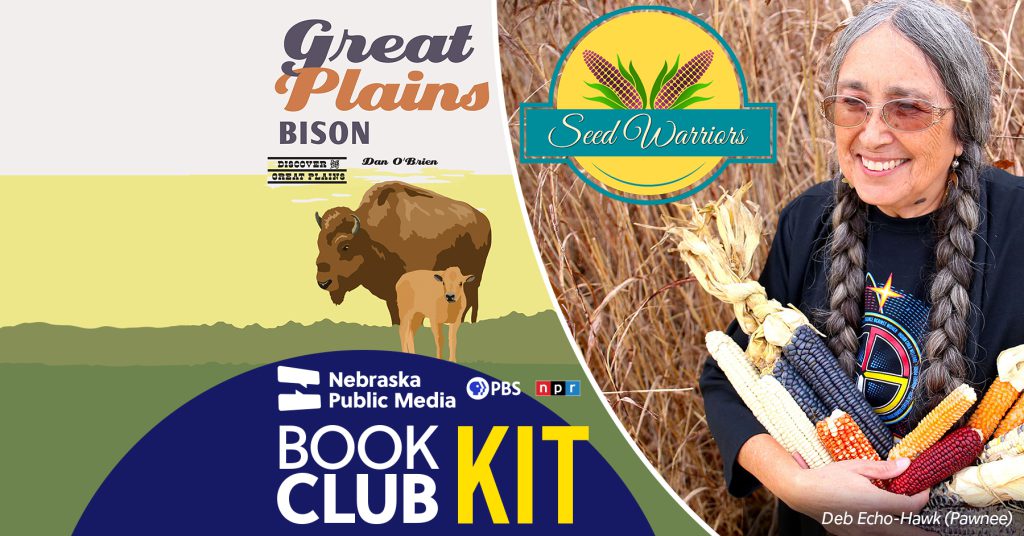
This book club kit explores the themes of conservation, restoration and respect. What can we learn from the stories of bison and the Pawnee seed keepers? How can conservation be practiced today?
The book club guide includes:
Discussion questions
Additional reading suggestions and organizations to explore
Two recipes from Chef Anthony Warrior
Great Plains Bison, written by buffalo rancher Dan O’Brien (also featured in The American Buffalo), traces the history and ecology of this American symbol from the origins of the great herds that once dominated the prairie to its near extinction in the late 19th century and the subsequent efforts to restore the bison population. A project of the Center for Great Plains Studies and the School of Natural Resources, University of Nebraska; published by Bison Books.
Seed Warriors, directed by Rebekka Schlichting (Ioway Tribe of Kansas and Nebraska), follows a group of seed keepers in their ancestral homelands of Nebraska as they seek to regain sovereignty over the food system. By reclaiming their sacred corn seeds, they work to return to the healthy, traditional lifeways of the Pawnee people. Learn more at PawneeSeed.org.
Produced in collaboration with Nebraska Public Media for the HOMEGROWN: Future Visions digital shorts series. HOMEGROWN: Future Visions is a Co-Production of Firelight Media and the Center for Asian American Media (CAAM), with funding provided by the CORPORATION FOR PUBLIC BROADCASTING (CPB), In Association with PBS
Ken Burns’s newest documentary, The American Buffalo, tells the dramatic story of the near extinction and improbable rescue of America’s national mammal. Premiering October 16 on PBS and the PBS Video App. Learn more at PBS.org/americanbuffalo.
Posted in Books & Reading, Education & Training
Leave a comment
What’s Up Doc? New State Agency Publications at the Nebraska Library Commission
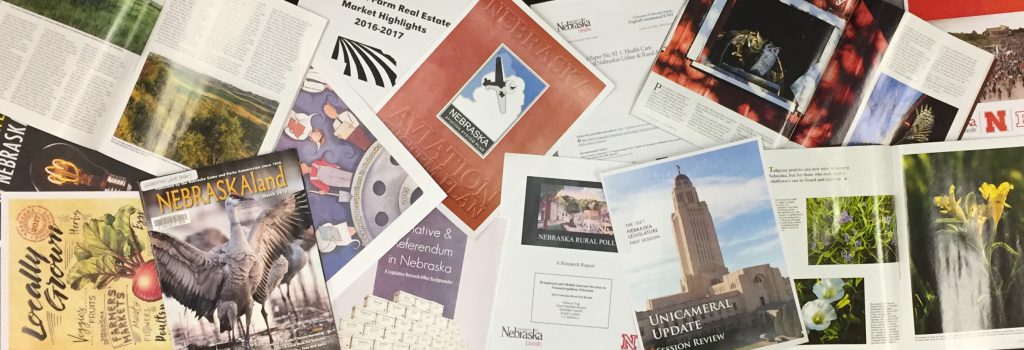
New state agency publications have been received at the Nebraska Library Commission for July and August, 2023. Included are reports from the Nebraska Administrative Services, Nebraska Colleges & Universities, the Nebraska Board of Examiners, the Nebraska Department of Labor, and new books from the University of Nebraska Press, to name a few.
Most items, except the books from the University of Nebraska Press, are available for immediate viewing and printing by clicking on the highlighted link above, or directly in the .pdf below. You can read synopses of the books received from the University of Nebraska Press in the Book Briefs blogposts.
The Nebraska Legislature created the Nebraska Publications Clearinghouse in 1972 as a service of the Nebraska Library Commission. Its purpose is to collect, preserve, and provide access to all public information published by Nebraska state agencies. By law (State Statutes 51-411 to 51-413) all Nebraska state agencies are required to submit their published documents to the Clearinghouse. For more information, visit the Nebraska Publications Clearinghouse page, contact Mary Sauers, Government Information Services Librarian; or contact Bonnie Henzel, State Documents Staff Assistant.
Posted in Books & Reading, Education & Training, General, Information Resources, What's Up Doc / Govdocs
Tagged books, GovDocs, Reading
Leave a comment
2024 NLC Grants are Open for Applications!
Nebraska Public Libraries and State-run Institutions! Do you have an idea for a program or project you would like to see funded?
The Nebraska Library Commission has made funding available for four grants for 2024: Continuing Education & Training, Internship, Library Improvement, and Youth Grants for Excellence.
Applications are being accepted for all NLC grants right now! Don’t let your library miss out on these opportunities!
Grant applications for all 2024 NLC grants are due November 17, 2023.
For more information about these grants, register for the September 20 NCompass Live webinar, NLC Grants for 2024.
Continuing Education & Training grants help assist Nebraska libraries to improve the library services provided to their communities through continuing education and training for their library personnel and supporters. Successful applications will show how the continuing education and/or training proposed will support the library’s mission. There will be two rounds of CE Grants. The first fall grants will open in September and applications will be accepted for events/projects/classes that must be completed before July 1, 2024. The second spring round will open in March and applications will be accepted for events/projects/classes that begin after July 1, 2024.
Internship grants work to introduce high school and college students to the varied and exciting work of Nebraska libraries. The internships are intended to function as a recruitment tool, helping the student to view the library as a viable career opportunity while providing the public library with the finances to provide stipends to the student interns.
Library Improvement grants facilitate growth and development of library programs and services in Nebraska public and institutional libraries, by supplementing local funding with federal funds designated for these purposes.
Youth Grants for Excellence are available specifically for innovative projects for children and young adults in your community. The program encourages creative thinking, risk-taking, and new approaches to enable youth librarians to begin needed programs and try projects which they have been unable to undertake, and to offer an opportunity to expand youth service capabilities in new and different directions.
Call for Speakers: Big Talk From Small Libraries 2024
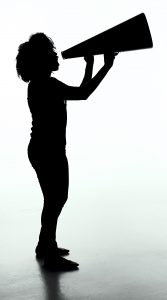
The Call for Speakers for Big Talk From Small Libraries 2024 is now open!
Submit your proposal by Friday, December 15, 2023.
This free one-day online conference is tailored for staff from small libraries; the smaller the better!
Small libraries of all types – public, academic, school, museum, special, etc. – are encouraged to submit a proposal. We’re looking for seven 50-minute presentations and four 10-minute “lightning round” presentations.
Do you offer a service or program at your small library that other librarians might like to hear about? Have you implemented a new (or old) technology, hosted an event, partnered with others in your community, or just done something really cool? The Big Talk From Small Libraries online conference gives you the opportunity to share what you’ve done, while learning what your colleagues in other small libraries are doing.
Here are some possible topics to get you thinking:
- Unique Libraries
- Special Collections
- New buildings
- Fundraising
- Improved Workflows
- Staff Development
- Advocacy Efforts
- Community Partnerships
- That great thing you’re doing at your library!
Speakers from libraries serving fewer than 10,000 people will be preferred, but presentations from libraries with larger service populations will be considered. Speakers must be from small libraries or directly partnered with a small library and submitting a proposal to co-present with the library.
Big Talk From Small Libraries 2024 will be held on Friday, February 23, 2024 between 8:45 a.m. and 5:00 p.m. (CT) via the GoTo Webinar online meeting service. Speakers will present their programs from their own desktops. The schedule will accommodate speakers’ time-zones.
This conference is sponsored by the Association for Rural & Small Libraries (ARSL) and the Nebraska Library Commission.
Photo by Patrick Fore on Unsplash
Book Briefs: New University of Nebraska Press Books at the Nebraska Publications Clearinghouse
The Nebraska Publications Clearinghouse receives documents every month from all Nebraska state agencies, including the University of Nebraska Press (UNP). Each month we will be showcasing the UNP books that the Clearinghouse has received.
UNP books, as well as all Nebraska state documents, are available for checkout by libraries and librarians for their patrons.
Here are the UNP books the Clearinghouse received in July and August, 2023:
Bad Subjects : Libertine Lives in the French Atlantic, 1619-1815, by Jennifer J. Davis. Series: France Overseas: Studies in Empire and Decolonization
In a lively account that spans continents, Jennifer J. Davis considers what it meant to be called a libertine in early modern France and its colonies. Libertinage was a polysemous term in early modern Europe and the Atlantic World, generally translated as “debauchery” or “licentiousness” in English. Davis assesses the changing fortunes of the quasi-criminal category of libertinage in the French Atlantic, based on hundreds of cases drawn from the police and judicial archives of seventeenth- and eighteenth-century France and its Atlantic colonies alongside the literature inspired by those proceedings.
The libertine life was not merely a subject for fiction nor a topos against which to play out potential revolutions. It was a charge authorities imposed on a startlingly wide array of behaviors, including gambling, selling alcohol to Native Americans, and secret marriages. Once invoked by family and state authorities, the charge proved nearly impossible for the accused to contest, for a libertine need not have committed any crimes to be perceived as disregarding authority and thereby threatening families and social institutions. The research in Bad Subjects provides a framework for analysis of libertinage as a set of anti-authoritarian practices and discourses that circulated among the peoples of France and the Atlantic World, ultimately providing a compelling blueprint for alternative social and economic order in the Revolutionary period.
Butterfly Nebula, by Laura Reece Hogan. Series: The Backwaters Prize in Poetry
Winner of the Backwaters Prize in Poetry, Butterfly Nebula reaches from the depths of the sea to the edges of space to chart intersections of the physical universe, the divine, the human, and the constantly unfolding experience of being “one thing in the act of becoming another.” This collection of poems teems with creatures and cosmic phenomena that vivify and reveal our common struggle toward faith and identity. The longing and metamorphosis of the human heart and soul are reimagined in an otherworldly landscape of firework jellyfish, sea slug, stingray, praying mantis, butterfly and moth, moon and star, and celestial events ranging from dark matter and Kepler’s Supernova remnant to a dozen classified nebulae. Our desire for purpose and renewal collides with the vast constellation of divine possibility in this collection, which invites the reader to enter a transformative world both deeply interior and embracing of the far-flung cosmos.
Fictionality and Multimodal Narratives, Edited by Torsa Ghosal and Alison Gibbons. Series: Frontiers of Narrative
Fictionality and Multimodal Narratives interrogates the multimodal relationship between fictionality and factuality. The contemporary discussion about fictionality coincides with an increase in anxiety regarding the categories of fact and fiction in popular culture and global media. Today’s media-saturated historical moment and political climate give a sense of urgency to the concept of fictionality, distinct from fiction, specifically in relation to modes and media of discourse.
Torsa Ghosal and Alison Gibbons explicitly interrogate the relationship of fictionality with multimodal strategies of narrative construction in the present media ecology. Contributors consider the ways narrative structures, their reception, and their theoretical frameworks in narratology are influenced and changed by media composition—particularly new media. By accounting for the relationship of multimodal composition with the ontological complexity of narrative worlds, Fictionality and Multimodal Narratives fills a critical gap in contemporary narratology—the discipline that has, to date, contributed most to the conceptualization of fictionality.
The Gathering of Bastards, by Romeo Oriogun. Series: African Poetry Book
Like I knew, standing
on the seashore, the hunger
wracking a migrant’s body
is movement.
—from Romeo Oriogun’s “Migrant by the Sea”
The Gathering of Bastards chronicles the movement of migrants as they navigate borders both internal and external. At the heart of these poems of vulnerability and sharp intelligence, the poet himself is the perpetual migrant embarked on forced journeys that take him across nations in West and North Africa, through Europe, and through American cities as he navigates the challenges of living through terror and loss and wrestles with the meaning of home.
The JPS Bible Commentary : Psalms 120-150, The Traditional Hebrew Text with the JPS Translation, Commentary by Adele Berlin. Series: JPS Bible Commentary
The Jewish Publication Society’s highly acclaimed Bible Commentary series provides the Hebrew text of the Bible, the JPS English translation, and a line-by-line commentary. This volume presents commentary on Psalms 120–150, based on the most recent research on the language of the Bible, its literary forms, and the historical context that may have given rise to the psalms. The commentary pays special attention to the message of each psalm and to how the poetry shapes the message. At the same time, it draws on traditional Jewish interpretations of the meaning of the psalms.
¡Vino! : The History and Identity of Spanish Wine, by Karl J. Trybus. Series: At Table
¡Vino! explores the history and identity of Spanish wine production from the mid-nineteenth century to today. Nineteenth-century infestations of oidium fungus and phylloxera aphids devastated French and Italian vineyards but didn’t extend to the Iberian Peninsula at first, giving Spanish vintners the opportunity to increase their international sales. Once French and Italian wineries rebounded, however, Spanish wine producers had to up their game. Spain could not produce only table wine; it needed a quality product to compete with the supposedly superior French wines. After the Spanish Civil War the totalitarian Franco regime turned its attention to Spain’s devastated agricultural sector, but the country’s wine industry did not rebound until well after World War II. In the postwar years, it rebranded itself to compete in a more integrated European and international marketplace with the creation of a new wine identity. As European integration continued, Spanish wine producers and the tourism industry worked together to promote the uniqueness of Spain and the quality of its wines.
Karl J. Trybus explores the development of Spanish wine in the context of national and global events, tracing how the wine industry has fared and ultimately prospered despite civil war, regional concerns, foreign problems, and changing tastes.
The Women Who Built Omaha : a Bold and Remarkable History, by Eileen Wirth.
During the 1930s the Federal Writers’ Project described Omaha as a “man’s town,” and histories of the city have all but ignored women. However, women have played major roles in education, health, culture, social services, and other fields since the city’s founding in 1854. In The Women Who Built Omaha Eileen Wirth tells the stories of groundbreaking women who built Omaha, including Susette “Bright Eyes” LaFlesche, who translated at the trial of Chief Standing Bear; Mildred Brown, an African American newspaper publisher; Sarah Joslyn, who personally paid for Joslyn Art Museum; Mrs. B of Nebraska Furniture Mart; and the Sisters of Mercy, who started Omaha’s Catholic schools. Omaha women have been champion athletes and suffragists as well as madams and bootleggers. They transformed the city’s parks, co-founded Creighton University, helped run Boys Town, and so much more, in ways that continue today.
**Pictures and Synopses courtesy of University of Nebraska Press.
NCompass Live at a SPECIAL TIME – 11am CT! AI: The Modern Day Pandora’s Box
Join us on next week’s NCompass Live on Wednesday, September 13 at a SPECIAL TIME – 11am CT, for ‘AI: The Modern Day Pandora’s Box’.
Artificial Intelligence (AI) has unfurled a world of possibilities and opportunities, but just like Pandora’s box, it comes with its own set of challenges and ethical conundrums. Brian Pichman of the Evolve Project takes you on a deep dive into the complex landscape of AI, its implications, ethical concerns, and its transformative role in both private and public sectors.
Key Takeaways:
- Understand the multifaceted nature of AI and its applications.
- Explore the ethical questions surrounding AI, from data privacy to job displacement.
- Discover how AI can serve as a force for good and where it may fall short.
- Gain insights into how industries are adopting AI technologies for innovative solutions.
- Learn actionable strategies for responsibly integrating AI into your organization or research.
About the Speaker:
Brian Pichman is a renowned technology evangelist and the Director of Strategic Innovation at The Evolve Project, a collaborative platform that encourages innovation and transformative change. With a strong background in emerging technologies and a passion for public service, Brian focuses on facilitating conversations that drive meaningful changes through technology.
Upcoming NCompass Live shows:
- Sept. 20 – NLC Grants for 2024
- Sept. 27 – Pretty Sweet Tech
- Oct. 4 – APPLE in Kansas – Training for New Library directors
- Oct 18 – Learning Opportunities and Resources from WebJunction

To register for an NCompass Live show, or to listen to recordings of past shows, go to the NCompass Live webpage.
NOTE: This week’s NCompass Live will be held from 11am-Noon Central Time. Convert to your time zone on the Official U.S. Time website.
The show is presented online using the GoTo Webinar online meeting service. Before you attend a session, please see the NLC Online Sessions webpage for detailed information about GoTo Webinar, including system requirements, firewall permissions, and equipment requirements for computer speakers and microphones.
Free Training Opportunity this October! Learn about Creative Aging Program Development for your library
Are you interested in providing creative programming for older adults in your community? The Nebraska Arts Council is partnering with the Nebraska Library Commission to offer training led by Lifetime Arts, a national leader in creative aging program development.
Library staff throughout the state are invited to apply for Creative Aging Arts Program (CAAP) Library Training, and the training is entirely free of charge.
Those who are accepted for this program will participate in three synchronous online sessions on Monday mornings, October 16, 23, and 30 from 10:00am-12:00pm CDT (9:00am-11:00am MDT). Up to two library staff per library building may apply. There are just 25 spaces available, and part of the online training is interactive, so applicants are asked to make a good-faith commitment to attend all three sessions at the designated times.
Participants will learn about exciting new nationwide trends to engage older adults through creative activities and help to alleviate loneliness, which is becoming recognized as a widespread challenge affecting many older adults. Participants will also see examples of creative activities led by artists that can be easily adapted in library settings, discover how creative arts programming can be a vehicle to nurture social interaction, learn tips and tricks about administering programs, and hear about grant opportunities through the Nebraska Arts Council’s Creative Aging Arts Program (CAAP).
Apply early! Applications will be reviewed on an ongoing basis, and spaces are limited. The final deadline to apply is October 2.
Questions? Contact Anne Alston at the Nebraska Arts Council.
Posted in Education & Training, Grants
Leave a comment
Pretty Sweet Tech: CyberPatriot’s National Youth Cyber Defense Competition
Cybersecurity is one of the top growing tech careers in the nation. The Air Force Association started their CyberPatriot’s National Youth Cyber Defense Competition to help middle and high school students explore cybersecurity careers by taking on the role of a cybersecurity systems administrator, working to prevent and address cyber threats to a small business. CyberPatriots is now the world’s largest cybersecurity competition!
Eligibility: The competition is open to all schools and approved youth organizations, including Boys & Girl Scout troops, STEM groups, libraries, and homeschool groups. School and public libraries are encouraged to apply!
Learn more about the competition structure, team member requirements, costs, and tech requirements on the CyberPatriot website.
Registration is due by October 3, 2023 so start planning now!
While you’re on the site, check out the Air Force’s other cybersecurity resources for senior citizens:
- CyberGenerations: This pre-packaged program is designed to introduce senior citizens to cybersecurity basics, password management, common internet threats, scams and fraud, and social media safety. CyberGenerations offers a Self-Paced Guide, and Workshop Resources to help facilitate virtual or in-person workshops.
- Tech Caregiver: This training course with resources and guides certifies trainers to assist senior citizens to safely operate online. This is a good course to get comfortable facilitating CyberGenerations workshops in your community.
Posted in Education & Training, General, Pretty Sweet Tech, Programming, Technology
Tagged Pretty Sweet Tech, prettysweettech, Programming, stem, technology
1 Comment
